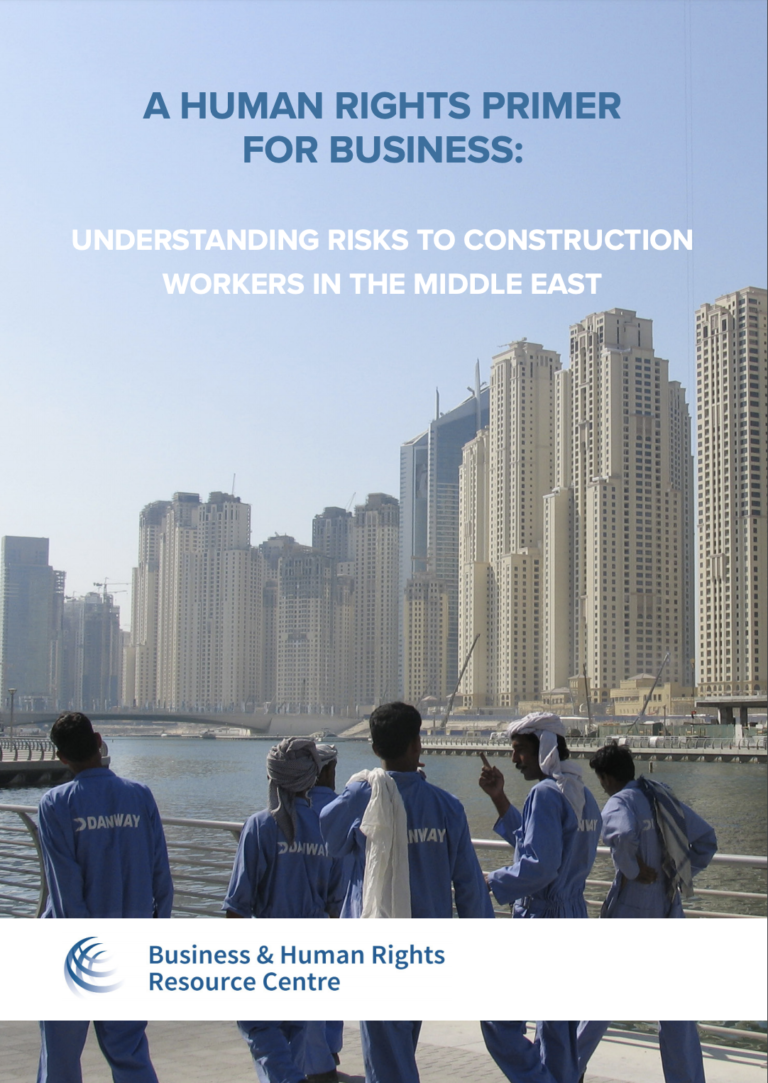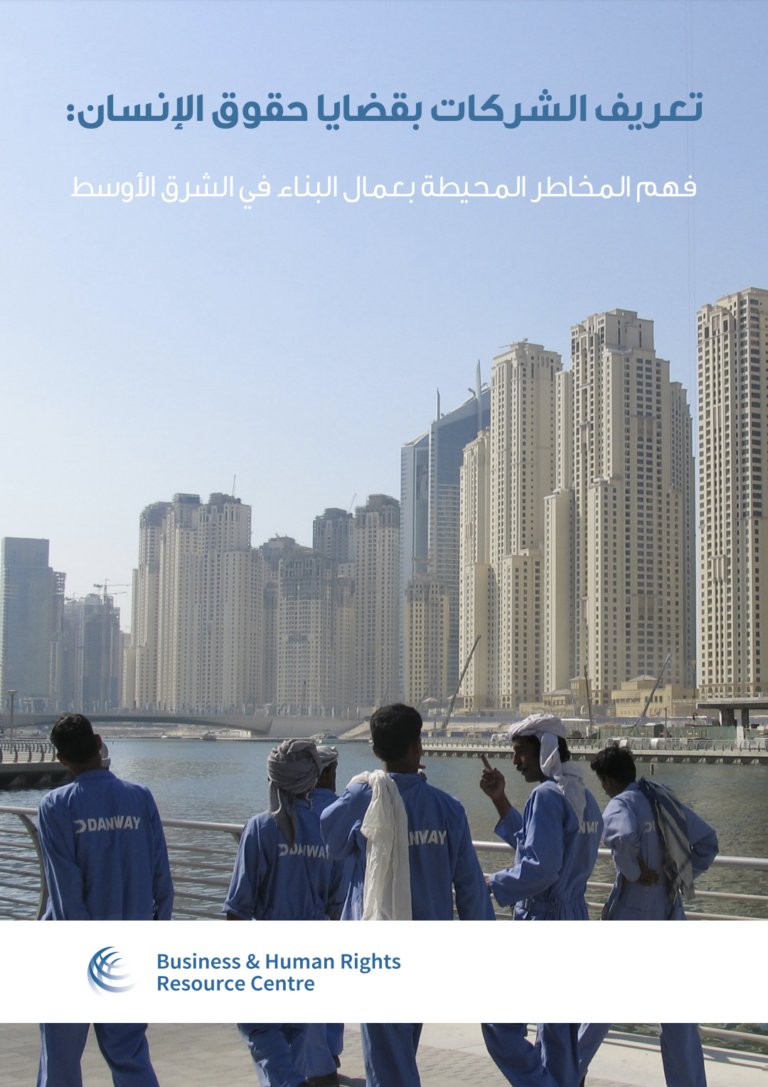Employment in the construction industry is characterised by low wages and precarious working conditions, with aspects of the business model contributing to widespread violations of workers’ labour rights. These include: a narrowmargin, least-cost financial structure that drives down wages; many layers of subcontracting that reduce transparency and accountability for abuse; and a project-based “boom and bust” cycle that invites companies to rely on external suppliers of temporary labour.
By some estimates, the Middle East’s construction sector is the largest and fastest-growing in the world. High-profile events such as the 2022 World Cup in Qatar, World Expo 2020 in Dubai, the construction of iconic institutions in Abu Dhabi, and the investment of international financial institutions into infrastructure in Jordan and Lebanon are among the forces driving this expansion. This fast growth has reinforced the sector’s reliance on migrants and refugees to fill gaps in the workforce.
This briefing highlights key risks to workers in the Middle East construction industry through country profiles on Jordan, Lebanon, Qatar and the UAE.
The briefing is also available in Arabic (see below).


